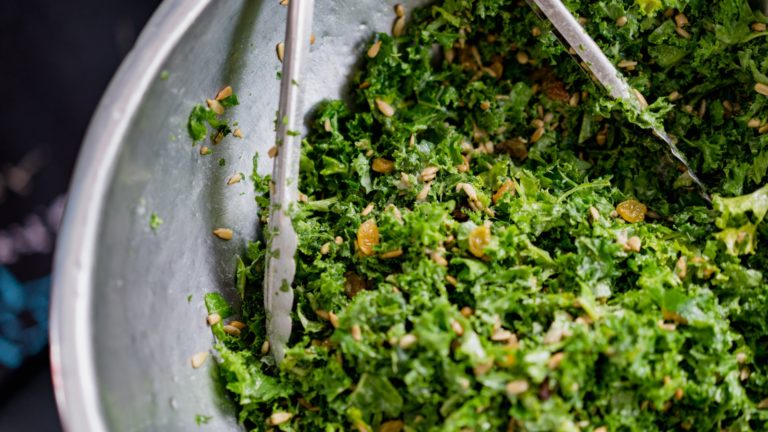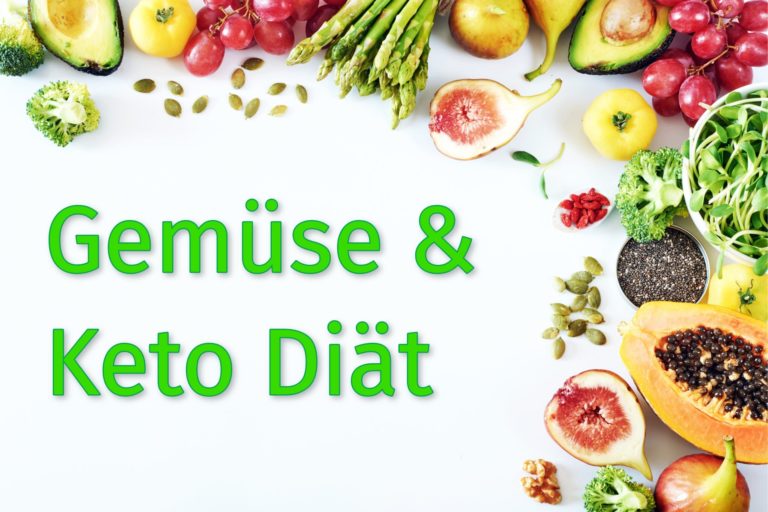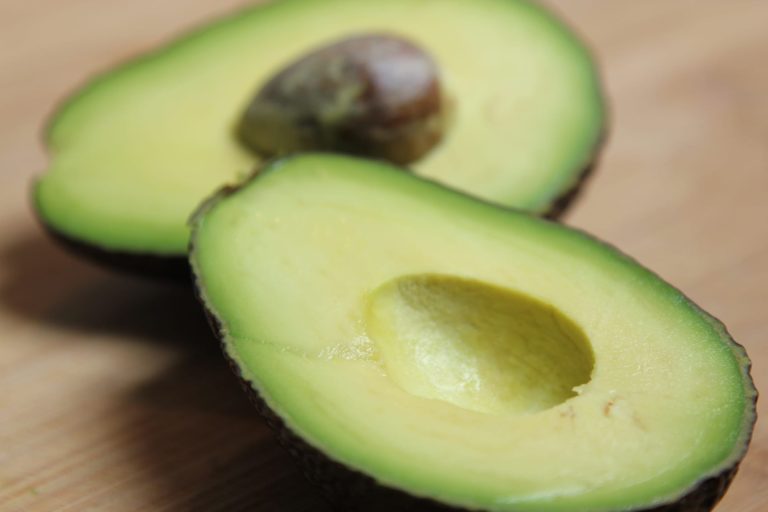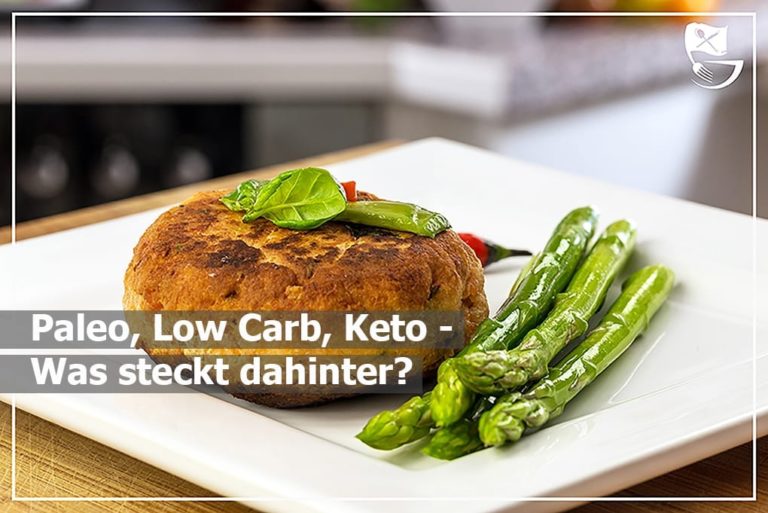To answer this question, one must first look at what type of diabetes is present. Is it type 1 diabetes or type 2 diabetes?
Diabetes and keto

Reader question: Is ketogenic diet suitable for diabetes?
Type 1 diabetes is an autoimmune disease in which the pancreas of the affected person can produce no or only little insulin. Type 1 diabetics are therefore dependent on insulin injections.
Type 2 diabetes is a chronic metabolic disease in which glucose (“sugar”) levels in the blood are elevated. The cause is insulin resistance of the cells – they do not respond (or respond only to a limited extent) to the signal from insulin and therefore do not let the “sugar” into the cells. To lower blood glucose levels, the drug metformin is often administered. As the disease progresses, the pancreas becomes damaged and gradually loses the ability to produce insulin. Then a type 2 diabetic must also inject insulin.
If you are a diabetic and want to eat a ketogenic diet, be sure to talk to your doctor. Because most likely, after a certain time, your medication will need to be adjusted – for example, the metformin or insulin dose.
A ketogenic diet will help keep blood sugar levels consistently low so that the damage that can occur from always having elevated blood sugar levels can be avoided.
With the right diet, ideally combined with some exercise, you can reverse type 2 diabetes in its early stages. The positive influence on your metabolism succeeds especially well if you possibly reduce existing excess weight. The ketogenic diet makes it particularly easy to lose excess pounds – without cravings and without the yo-yo effect. This improves metabolic health quite tremendously (the health of your metabolism).
Du möchtest auch erfolgreich und lecker abnehmen?

As soon as the blood glucose level is consistently lower, the metformin dose can and, if necessary, should be adjusted downward to prevent hypoglycemia (metformin would further reduce the blood glucose level, which is already low due to the ketogenic diet).
As a diabetic, you need to listen to your body even more closely than a person without the disease. Be careful not to slip into hypoglycemia due to incorrectly adjusted medication. A steady supply of energy and low carbohydrate intake with carbohydrates coming mainly from fiber-rich vegetables are the first basis for this. Talk to your doctor to see if you can reduce your medication dose.
As an insulin-dependent diabetic, you should approach the ketogenic diet with extra caution. Both type 1 and type 2 diabetics in the later stages of the disease can be insulin-dependent. As a diabetic, you are probably familiar with the term ketoacidosis. Many doctors even lump ketoacidosis in with ketosis, which is factually incorrect.
Ketosis is a physiological (i.e. natural/healthy) metabolic state in which the amount of ketone bodies is slightly elevated above normal. Ketosis is achieved through fasting or ketogenic diet. In ketosis, for example, one has ketone body concentrations of 3-6 mmol/l. In healthy people, the values cannot rise much above this.
Because: Insulin is the antagonist of ketone bodies!
You certainly know that insulin rises when you eat sugar. But did you know that ketone bodies also attract insulin? If the ketone body level in the blood rises, the insulin level also rises. The insulin causes some of the ketone bodies to be excreted in the urine. Thus, in a healthy person, the ketone body level is always kept within the physiological (i.e. healthy) range. It cannot go any higher.
It is different when the pancreas no longer produces insulin. Ketone body levels rise but do not attract insulin. Suddenly, the ketone body level has no natural limit, no counterpart. This is why ketoacidosis can occur in cases of absolute insulin deficiency (that is, when the pancreas can no longer produce insulin). These are ketone body concentrations of over 25 mmol/l – as high as they can never become in a healthy person.
That’s why, as an insulin-dependent diabetic, you need to monitor not only your blood glucose levels, but also your ketone body concentration. Your insulin dose must be adjusted to regulate both blood sugar and ketone bodies.
This sounds complicated at first – so please inform yourself well and talk to your doctor about the planned change in diet. In the long run, you’ll benefit from a ketogenic diet even if you’re an insulin-dependent diabetic – blood sugar stays consistently low and insulin doses can be reduced. For a moderate start, I recommend trying a moderate low carb diet first (with 50-100 g of carbohydrates per day) and later a moderate ketogenic diet (with 30-50 g of carbohydrates per day). Just see how it makes you feel and how your values change.
Watch the exciting interview with Bettina Meiselbach from “Happy Carb: Diabetes Type 2 – not with me” here and learn more about her success story.
Always stay up to date with our Newsletter.
Foto: Shutterstock / Durch Maya Kruchankova
Similar posts by Foodpunk

Why cheese is addictive – The daily bite of knowledge
Many people are ready to change their diet. They are willing to try new ways and give up certain foods. Except one. Very often I hear "Yes, but... not without my cheese!"

5 tips for a bear strong immune system
If you want to give your immune system a real power boost, take these 5 food punk tips to heart.

What actually is Jerusalem artichoke? – The daily bite of knowledge
Topinam...what?? While the average German has never heard of this plant with the strange name, Jerusalem artichoke is now widely used in low carb circles.

Cold potatoes – The daily bite of knowledge
Cold potatoes have fewer calories than hot? Excuse me? Exactly! The key is the so-called resistant starch.

That’s how many vegetables the keto diet really contains!
Often you hear that in a ketogenic diet must be completely abandoned fruits and vegetables. Here is the proof to the contrary.

Who invented the ketogenic diet?
No, the ketogenic diet is not a newfangled phenomenon for losing weight. It is not a crash diet or a passing trend.

Ketogenic diet in glucose transporter deficiency.
Glucose transporter type 1 deficiency syndrome (GLUT1DS) is a very rare, auto-somal dominant inherited, neurometabolic disorder first reported in 1991 by De Vivo et. al. was described as epileptic encephalopathy in the New England Journal of Medicine on the basis of 2 case reports.

What is the difference between Paleo, Low Carb and Keto?
Stop the confusion! Here you can read what's behind Paleo, Low Carb and Keto. What are the differences? What the similarities? Which diet is the right one?
